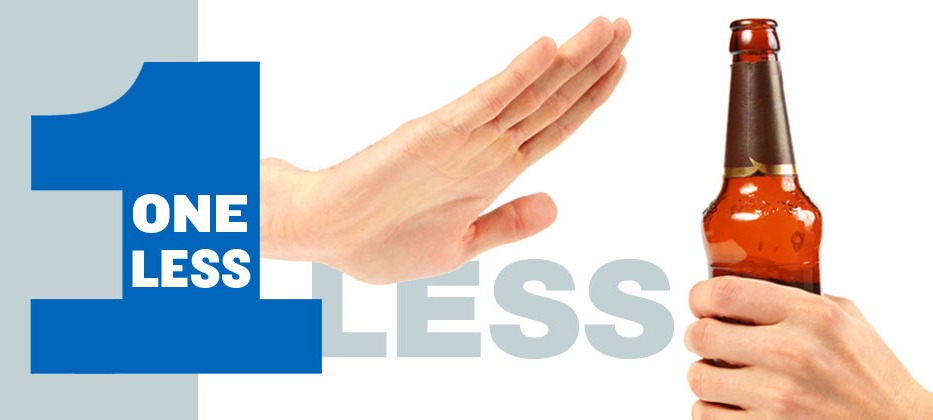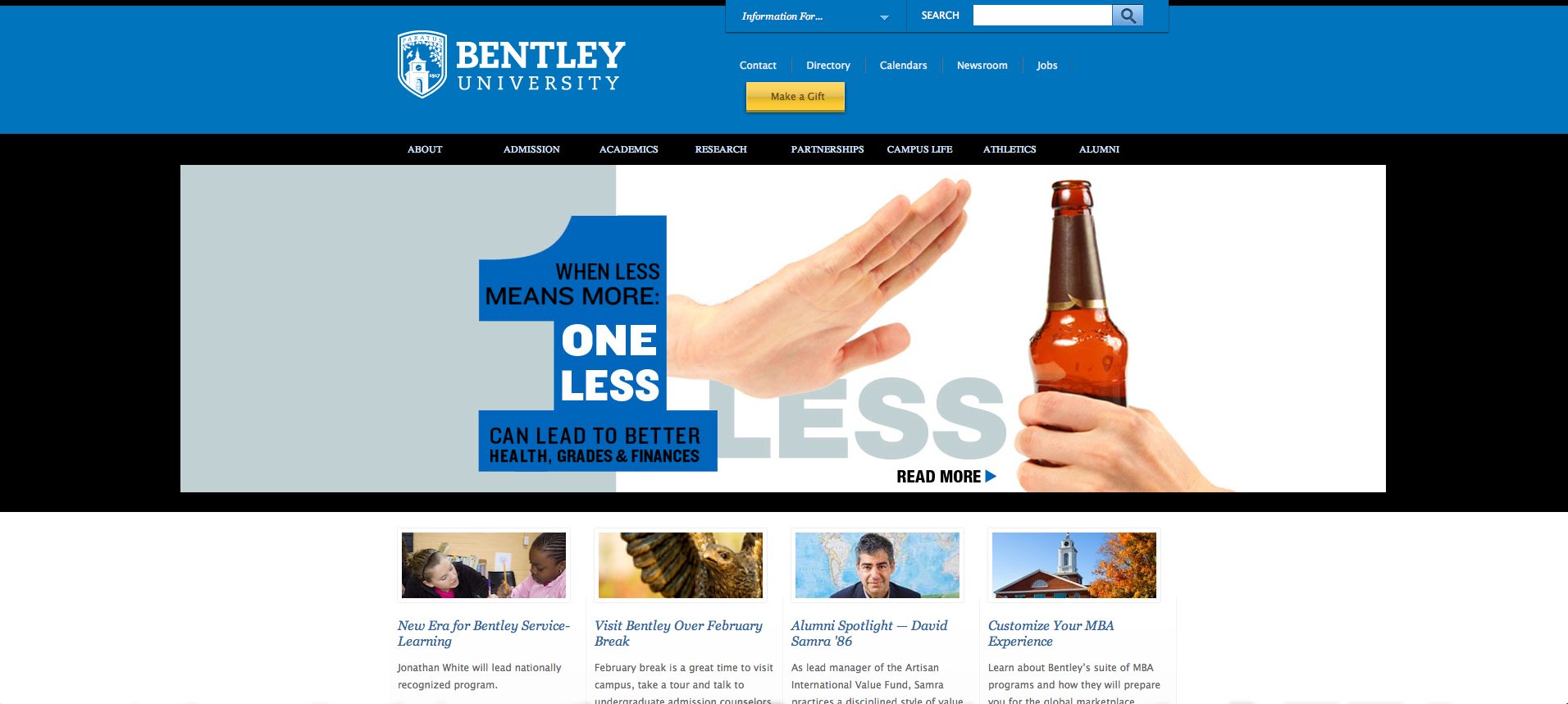
When Less Means More

Bentley University Homepage Feature
While an emotional appeal can often ignite a movement, cold, hard numbers can be just as effective in spurring people to take action. That one-two punch is the foundation of Bentley’s OneLess program, a one-year-old initiative that encourages students to consider drinking one less drink per occasion or one less occasion per week in order to improve their GPA, overall health, or finances.
According to Jessica Greher Traue, senior assistant director of the Center for Health and Wellness, most college students who choose to drink do so moderately. Research indicates that moderate drinkers actually experience the greatest number of negative consequences from drinking, but often don't recognize their choices as risky. OneLess aims to convince moderate drinkers to slightly alter their drinking habits.
“We don’t want students to feel defensive about their behavior,” says Greher Traue. “The challenge has been to create a message they won’t tune out.”
Sobering Statistics
To persuade students, Greher Traue and her Student Affairs colleagues — Doreen Floyd, associate dean of student affairs, Brandon White, assistant director of judicial programs, Margaret Fitzgerald, associate director of the Center for Health and Wellness and Nina DeAgrela, assistant director of the Multicultural Center — looked at national data and also surveyed Bentley students on the negative impacts of drinking. By combining national findings with Bentley-specific survey data, they unearthed several attention-grabbing statistics:
- By drinking six beers one night a week, a student consumes nearly 47,000 calories each year — comparable to almost 22 large cheese pizzas
- That same student, according to national averages, has a GPA that is 0.11 points below that of peers who have only four to five drinks one night a week (according to 2010 figures, more than 750 Bentley students fell within 0.11 points shy of the President’s and Dean’s lists)
- Each year college students nationally spend $5.5 billion dollars on alcohol (Weschler et al., 2005)
Building Support
Armed with this data, staff set out to explore ways of engaging students in the topic — a key to the program’s success, according to students and administrators alike. The efforts included:
- A roving art exhibit demonstrating the negative caloric, academic, and financial consequences of having six or more drinks in one night (one “sculpture” comprised 22 pizza boxes)
- An ad campaign featuring photos of students with their individual one less decision – such as one less embarrassing story, one less day of procrastinating, one less night out
- Logo design and social media competitions
- Increased efforts to promote on-campus, alcohol-free events on weekend nights
- Information about academic consequences from moderate consumption for faculty to include in their syllabus
“There’s been a real effort made to be present where students gather,” says Tricia Guiao ’15. “We’ve had lots of opportunities to interact and own our role in the OneLess movement.”
Measurable Results
After just one year, the movement is already creating positive change on the Bentley campus. Upon the program’s one-year anniversary in October 2012, approximately one-quarter of Bentley students took part in a follow-up survey that reported:
- Male students took one less drink per social occasion, while female students consumed a half drink less per event
- Two-thirds chose to stay in one night or drink less frequently
- Half deliberately chose a drink containing less alcohol
- Fifty-five percent set a drink limit before going out
"We’ve heard about the consequences of heavy drinking, but that doesn’t always resonate when the weekend rolls around,” says Sophia Sirage ’15. “OneLess takes a realistic approach because instead of asking you to stop drinking altogether, it challenges you to turn it down a notch.”
Stay tuned
With new data, a new website and a new logo, OneLess has new initiatives planned for this spring, including new window clings for students to promote the program, a fundraising challenge in March for students to donate the money they saved by consuming OneLess and a multimedia "social norms" campaign featuring prominent student leaders.
Learn more about OneLess online.
Post a comment